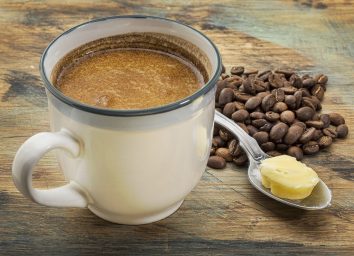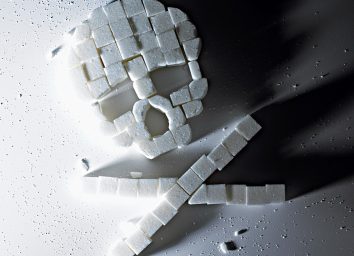5 Foods That Can Help You Conceive
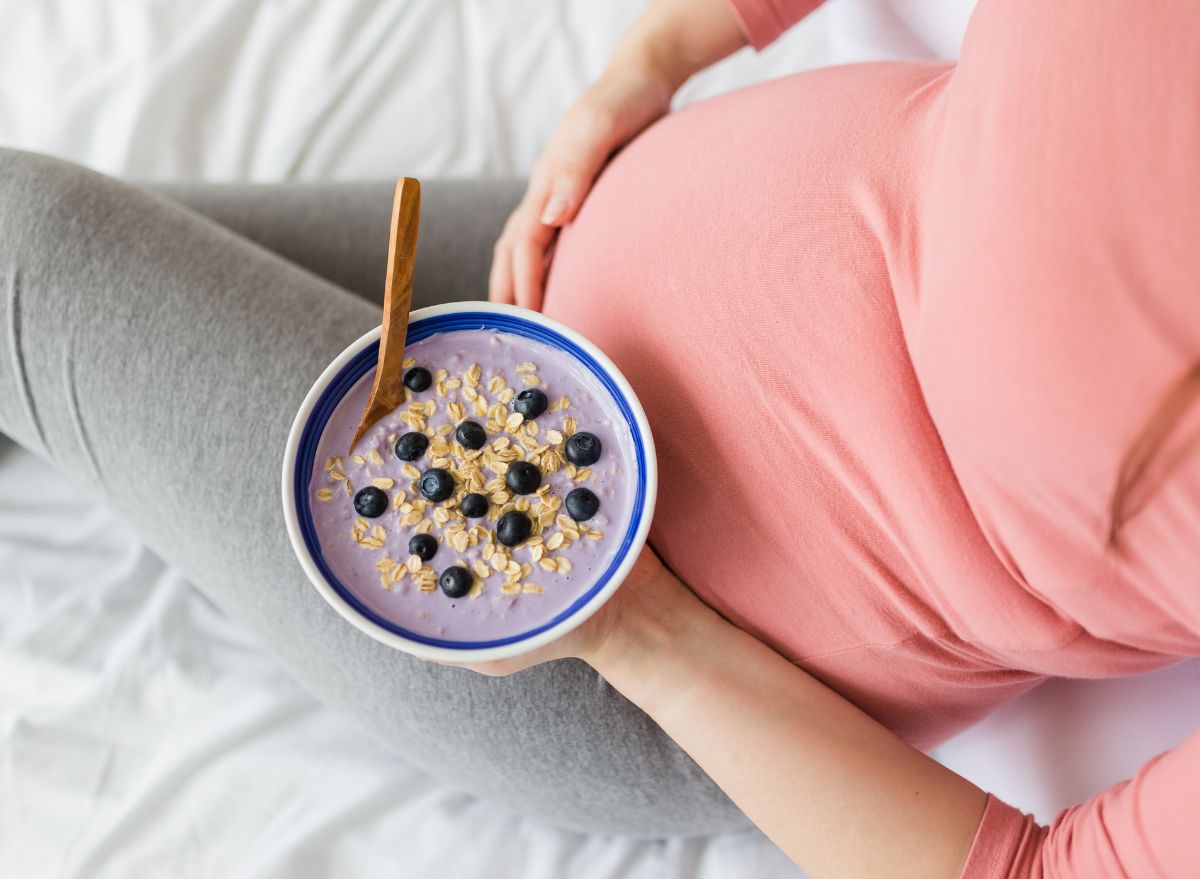
Are you trying to get pregnant for the first time? Or do you have a goal set that baby #1 will no longer be an only child by next year? Either way, stocking your fridge with the right foods is one of the most vital steps to successful conception.
Considering approximately 11 percent of women in the United States have experienced trouble conceiving, wishful moms-to-be can take some comfort in knowing that they can be proactive about improving their fertility.
Women can boost their chances of becoming pregnant by simply changing their diets. “Making the right dietary choices and including the right amount of physical activity in your daily life may make a large difference in your probability of becoming fertile if you are experiencing problems with ovulation,” Walter Willett, chair of the Harvard School of Public Health Department of Nutrition, explained to Science Daily.
That’s why the dedicated research team at Eat This, Not That! has compiled a list of pregnancy-approved picks that will help increase your chances of conceiving, boost fertility, as well as prime your body for baby. So after you’ve smoothed the sheets and fluffed up the pillows (hey, a rendezvous with your S.O. is also mandatory!), pick up a copy of Eat This, Not That! When You’re Expecting to feed your way to a growing family. And just as important as eating foods that can help you conceive, it’s also important that you avoid these 10 Worst Foods For Fertility as well.
Whole Milk
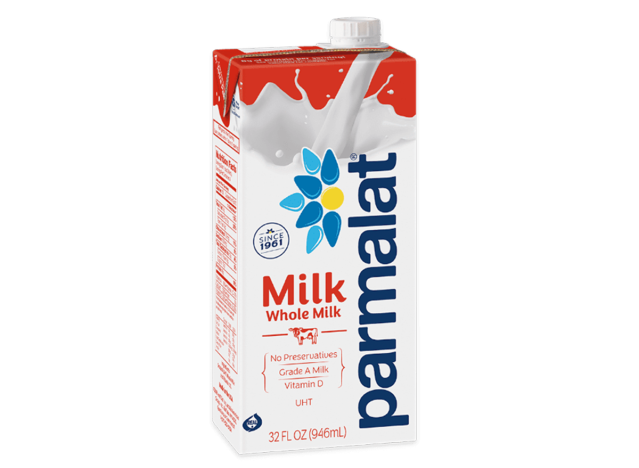
As an avid reader of Eat This, Not That!, you already know that we’re big fans of full-fat dairy thanks to its satiating qualities and solid dose of nutrients. While we know that it can help flatten a bulging belly, research suggests that the indulgent dairy can also help women grow a baby bump. According to a study published in the Human Reproduction journal, high-fat dairy decreases the risk of anovulatory infertility (when the ovaries do not release an oocyte during the menstrual cycle), whereas a high intake of the low-fat variety can increase your risk. How so? Researchers hypothesize that the higher estrogen concentration in high-fat dairy can help decrease a compound (known as IGF-I) that has been connected to infertility.
Complex Carbs

When it comes to carbs, complex is always better. “Choosing slowly digested carbohydrates that are rich in fiber, like whole grains, vegetables, whole fruits, and beans, instead of rapidly digested carbs, can improve fertility by controlling blood sugar and insulin levels,” according to Harvard Medical School. This recommendation is based on the 20-year-long Nurses’ Health Study, which found that women whose diets contained a higher intake of high-fiber, low glycemic carbohydrates had significantly improved fertility. What’s more, opting for brown rice, whole grain bread, quinoa, steel-cut oats, and bulgur over bleached varieties helps you consume more micronutrients and fiber that are unique to the unstripped grain. For some of our favorite fiber-rich carbs, be sure to check out these 43 Best High Fiber Foods.
Fatty Fish
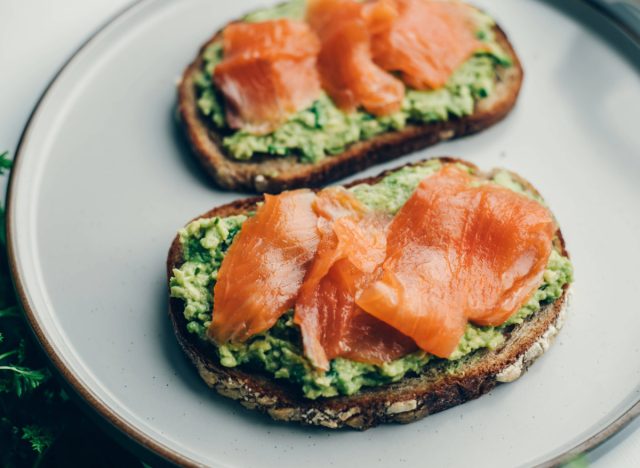
Fatty fish like salmon and sardines pack in omega-3 fats that boost brain power and blast belly fat. And according to research published in the journal Aging Cell, the fatty acid can also help turn back your reproductive system’s clock. The study found that omega-3s can increase natural fertility in women who are at “advanced maternal age,” or over 35, by improving oocyte quality. ”If you’re shunning swimmers from a fear of mercury, know that fish are your friends during pregnancy, and that you’re risk of mercury poisoning is nearly non-existent if you’re smart about what you eat,” explains Dr. Jennifer Ashton, OB/GYN and coauthor of Eat This, Not That! When You’re Expecting. “Substantial levels of mercury build up only in large sea creatures that eat plenty of other sea creatures—think carnivores like sharks and swordfish.” Ashton recommends going for cod, halibut, pollock, light tuna, and wild salmon as well as many of these other 15 Best Omega-3 Superfoods.
Tea
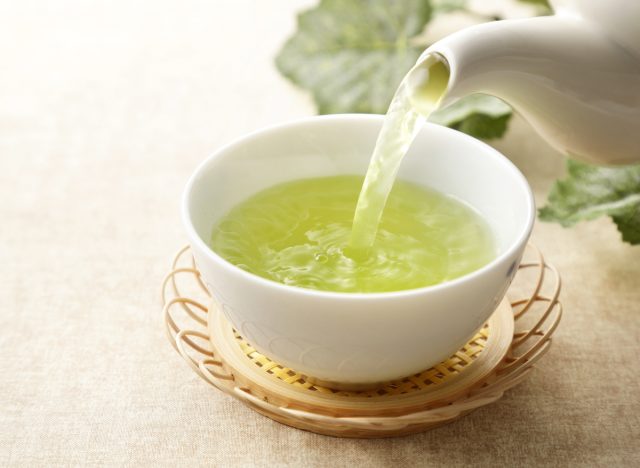
Tea has a plethora of powers, from promoting clear skin to revving your metabolism. So when we found out that the brew’s got another stellar benefit, we weren’t too surprised. According to a study in the American Journal of Public Health, drinking at least a half cup of tea a day almost doubled women’s chances of conception. Although the study didn’t mention what kind of tea the participants sipped, beyond stating “regular tea,” the researchers believe that tea’s polyphenols can increase fertility while the xanthines (naturally-occurring stimulants) found in tea may be able to help fertilize oocytes. Since this wasn’t an intervention study, the authors can only draw conclusions based on observations, fully considering that the results may have been affected by other lifestyle factors. Keeping this in mind, there’s absolutely no reason not to try one of our favorite teas when you’re trying to get pregnant.
Soy
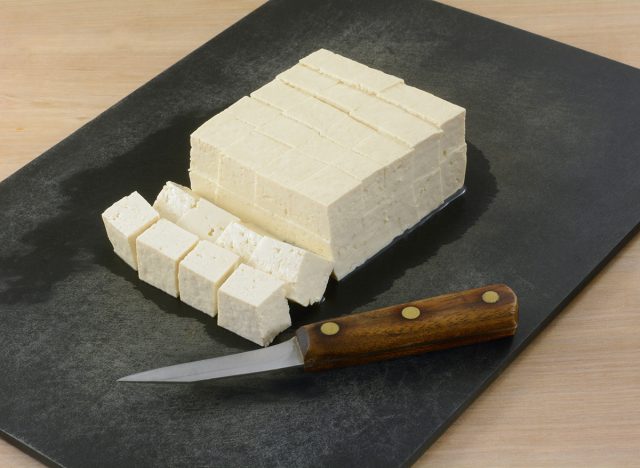
Although soy foods aren’t directly associated with increased fertility, they may help protect against the harmful effects BPA (an estrogen-mimicking chemical that has been linked to miscarriages) poses on the reproductive system. We can chalk up the protection to soy’s phytoestrogens, which modulate BPA’s harmful effects. Of course, it would be smart to prevent BPA exposure by avoiding canned foods, plastic water bottles, and these 16,000+ Supermarket Foods that are Laced with BPA. Although the The Journal of Clinical Endocrinology & Metabolism study was performed on rodents and might not apply to humans, you can still consider adding organic soy to your diet as it’s one of the 30 Foods That Reduce Your Risk of Breast Cancer.
